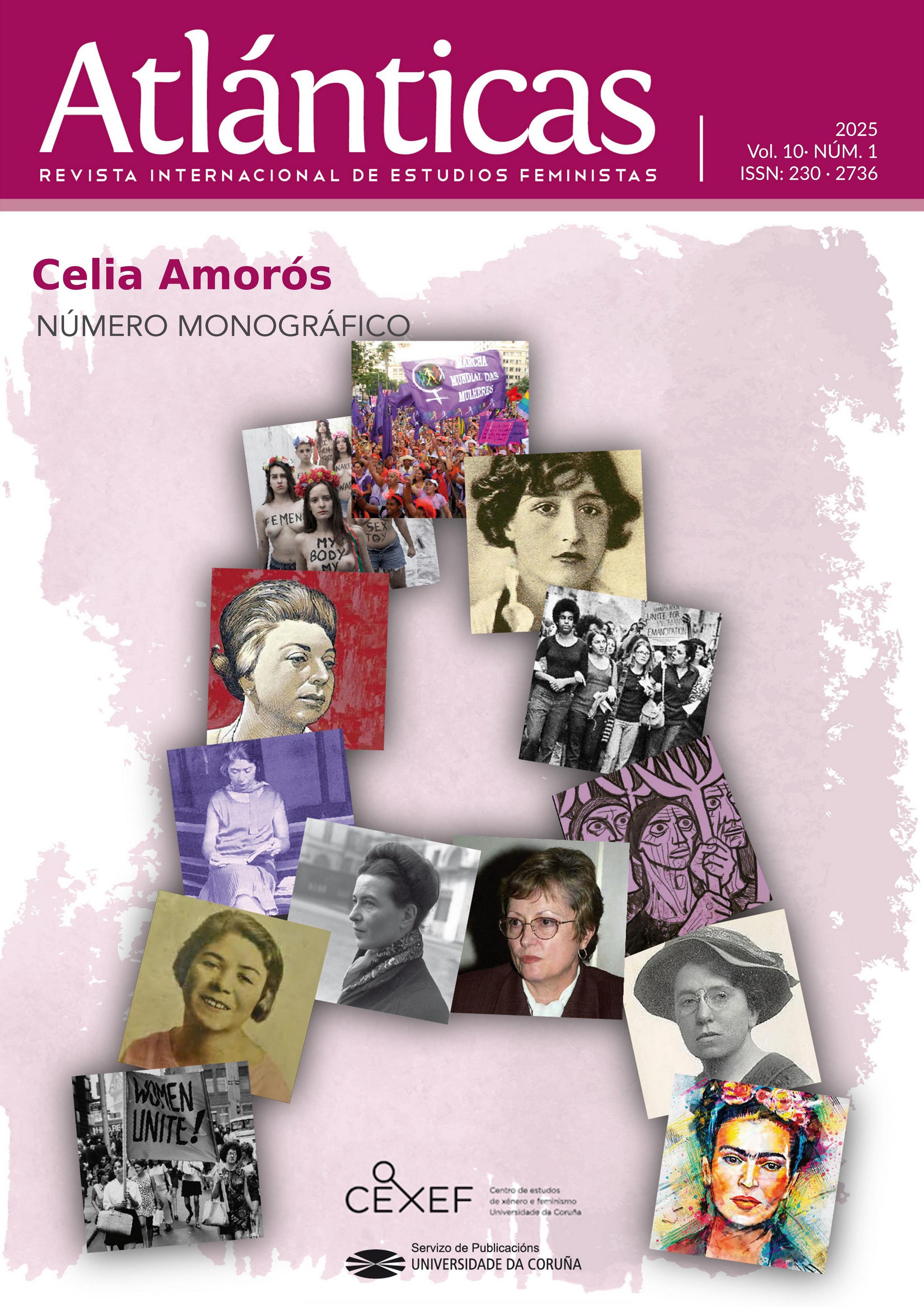Current Issue
Vol. 10 No. 1 (2025): The philosophical feminism of Celia Amorós

In this special issue we present seven articles and a review on the philosopher Celia Amorós, written by some of her disciples, with the aim of describing the most important aspects of her thought. Her work fuses theory and praxis, as befits a work carried out from critical theory, in which conceptual rigor and the rejection of well-trodden paths mark her discourse.
Published:
2025-02-28
